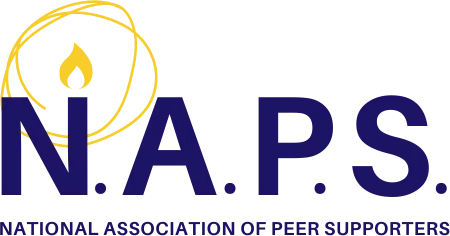ACE Career Coach
Communityaccess.orgJOB DESCRIPTION
Job Title: ACE Career Coach
Department: Community Engagement Services
Reports To: Director of HTH
Supervises: none
Program: Howie The Harp
Advocacy Center – Assisted Competitive Employment Program
Work Site: Howie The Harp Advocacy Center
Program/Department Description:
Howie the Harp Advocacy Center programs are rooted in the value of Peer expertise in recovery and self-determination, and the Center is run by professionals who have lived experience with mental health concerns and identify as Peers. Through the Peer Training Program, Assisted Competitive Employment Program (ACE), and other initiatives, the Center provides a wide range of services including training, internship experience, job placement assistance and support, and continuing education services. The ACE program provides Supported Employment services, utilizing the evidence-based model, Individual Placement and Support (IPS) for people in mental health recovery. Employment search and support is solely based on the goals and preferences of participants. We work in collaboration with participants’ recovery team and other supports to help ensure success. This service is free of charge. The length of stay in the program is maximum of 24 months from the date of enrollment for each individual program participant.
Full Time
FLSA: Non-Exempt
Revised: 12/7/2022
Salary Band: H
HR Approval:
Executive Manager Approval:
Overview
The ACE Career Coach provides person-centered employment support including job preparation and search, job development, placement, and job retention coaching to ACE participants. Through a customized array of services delivered both on site and in the field the Career Coach develops connections to community employers and provides support and skill development toward success and satisfaction in the participant’s chosen field of employment.
Core Principles
The job responsibilities of all staff extend to understanding and incorporating certain principles into their work and into their relationships with program participants. These principles are:
– Program participants’ right to self determination;
– Respectful communication;
– Services that support recovery and healing consistent with and nurturing each participant’s cultural background, experience, identity, and values.
– Clear professional boundaries to support the limits and possibilities of services.
Essential Job Functions
• Provide individualized pre and post-employment support at the level of intensity and frequency needed.
• Conduct strengths-based vocational assessments and develop a person-centered vocational service plan that addresses skill development and mental health supports needed to support employment goals.
• Foster connection, trust, understanding and validation with participants.
• Model and help participants develop employment related soft skills including organization, time management, communication, conflict management, and navigating bureaucracies.
• Plan and facilitate employment readiness classes, meetings, groups, and other activities.
• Collaborate with other programs/organizations to coordinate services addressing employment needs.
• Act as liaison, in office and in the field, between participants, work-site supervisors, employers, external service providers and natural supports. This may include supporting participants in advocating for reasonable accommodations, developing workplace relationships, and other ongoing and intensive job-related needs.
• Engaged participants in assessing strengths, barriers and needs regarding obtaining permanent satisfying employment.
• Assist participants with resume creation, cover letter writing, on-line applications and interviewing skills practice.
• Produce job appropriate task analyses, coaching, and customized training as well as career advancement supports.
• Identify and develop employment opportunities for participants by connecting with potential employers.
• Provide benefits counseling regarding the impact of work on benefits.
• Document and maintain thorough, timely and accurate records of all participant-related services in various electronic databases (AWARDS, NYESS, ACCES-VR) as required by agency, and contractual standards.
• Attend and participate in supervision, meetings and training sessions, as required.
• Perform other duties as assigned.
This job description reflects management’s assignment of essential functions; it does not prescribe or restrict the tasks that may be assigned.
===============================================================
Job Qualifications/Requirements
Ability to create and foster empathic, professional and respectful relationships between yourself and other people, required
Strong computer, organizational, and documentation skills, required
At least two years of experience working in mental health services, preferably employment or rehabilitation setting, required
Personal lived experience with mental health concerns. Possess and maintain a NYS OMH Peer Specialist certification or be willing to obtain one within six months of employment, preferred
Minimum of a high school diploma or equivalent, required (bachelor’s degree preferred)
A commitment to upholding the philosophy, mission, and values of Community Access and Howie The Harp Advocacy Center, required
Must be fingerprinted and cleared by the Office of Mental Health (OMH), required
Howie The Harp Peer Training Program graduate, preferred
Training/group facilitation experience, preferred
Demonstrated knowledge of benefits, entitlements, or work incentives, preferred
